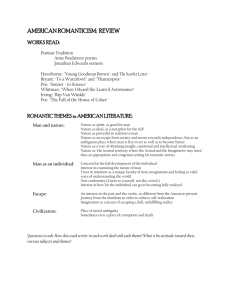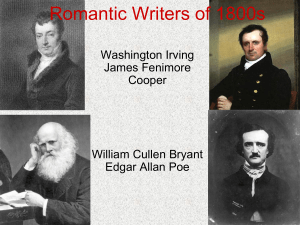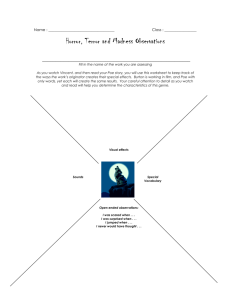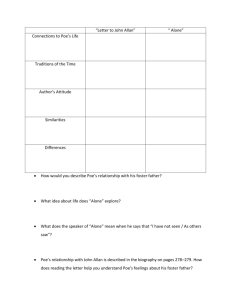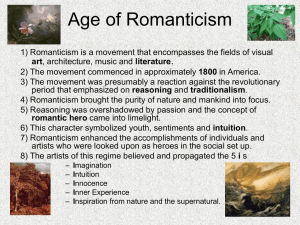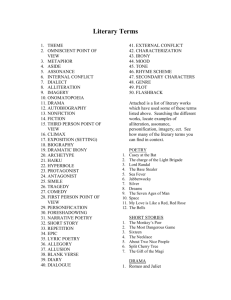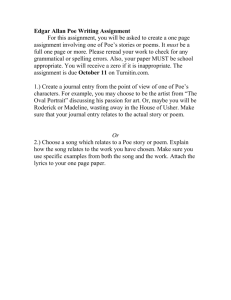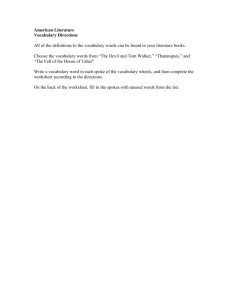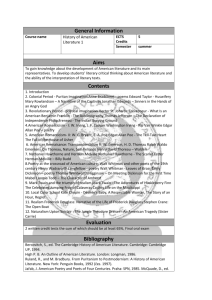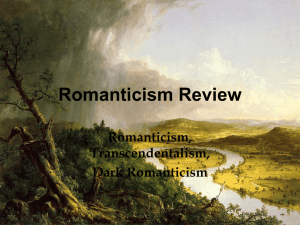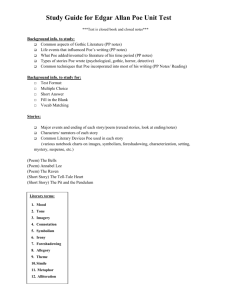Romantic Writers of 1800s
advertisement
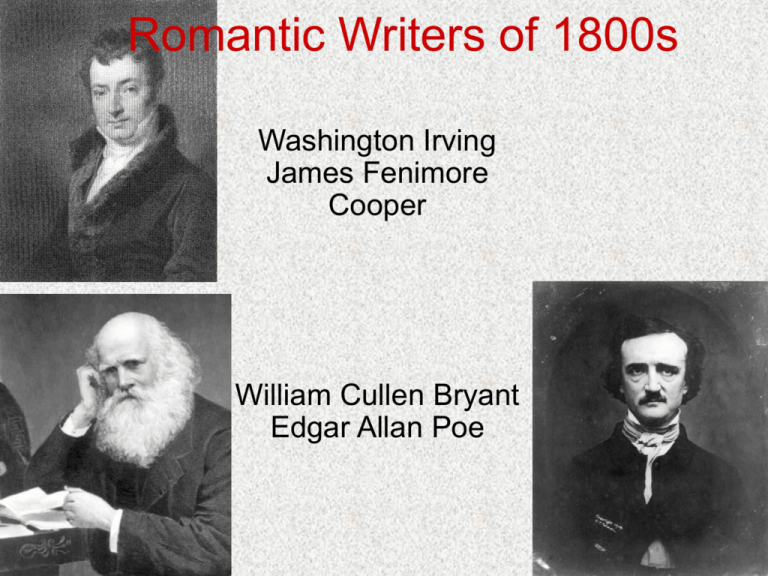
Romantic Writers of 1800s Washington Irving James Fenimore Cooper William Cullen Bryant Edgar Allan Poe Washington Irving • Romantic tales of folklore adapted from European legends • set in American landscape • characterized by American stereotypes that reveals general truths about human nature – Nagging wife – Battered husband • Old truths (stereotypes) about human nature and possibilities of American landscape (mixes history with fantasy through use of hearsay) • Uses humorous tone (satirical at times) but conveys serious message about human values Notable Works • “The Legend of Sleepy Hollow” – Link to Bartleby – Link to Video • “Rip Van Winkle” • The Sketchbook of Geoffrey Crayon, Gent. • A History of New York…by Diedrich Knickerbocker Pictured: John Quidor, 1801–81, The Headless Horseman Pursuing Ichabod Crane, 1858, oil Rip Van Winkle, oil on canvas by John Quidor, 1829; in the Art Institute of Chicago. “The Devil and Tom Walker” • Common folktale about selling soul to the devil • “Devil will get his due” • Other Devilish Names – black man of the forest; black miner; black woodsman; Old Scratch; Mephistopheles; Satan; Diablo; Lucifer Literary Analysis Be able to provide examples or discuss each of these as they pertain to the tale. • Characterization – Stock, flat characters • Tone – Humorous • Irony • Style – Mix of history and hearsay • Message about human values William Cullen Bryant • Poetry reflects Romantic approach to life • through imagination and intuition one can learn from Nature great moral and spiritual truths • “religion of nature”---natural world is inexhaustible source of moral and spiritual lessons • Observations of nature evoke feelings of self in oneself. • Father of American Poetry By living in harmony with nature, • man will understand transience (temporary state) on earth • accept death • rejoice in immortality of nature Notable Poetry • “To A Waterfowl” • “Thanatopsis” – Audio version Randy Pausch Video Poetic Devices • • • • • • • Blank Verse Free Verse Caesuras Foot Meter Personification Imagery Literary Analysis • Lesson or truth about life in each poem • Sentimentalism Commentary on “Thanatopsis” • Romantics poets were often concerned about: – Death – Individualism • Since death is the final restriction upon the self and its powers, individualism (the power of the self) became an important theme in poetry. Emphasis of the poetry • Romantics emphasized the organic process of constant changes in nature: Every living thing fulfills its appointed life cycle of birth, growth, decay, and death. Sentimentalism • An expression of feeling that is excessive for the subject and becomes an indulgence in the emotion for its own sake. • “Thanatopsis” avoids sentimentalizing death because it neither disguises it nor dwells too much upon its sadness. • Ashes to ashes, dust to dust mentality Theme of “Thanatopsis” • By living in harmony with nature, and realizing that all must come to an end, rather than fear it, one can come to accept death as a restful sleep • If we move away from fear and bitterness about death, then our broader awareness about the “consciousness of time” (life eternal) makes it possible to accept our time on Earth and the natural completion of death. Poe • Romantic view of Nature and the inner self by depicting irrational characters in a grotesque reality • Nature’s greater truth = madness “Poe myth” vs. Poe’s Reality • Myth = immoral behavior; fiendish; brutish • Reality = life was dull, miserable, dreary, perhaps just unlucky Accomplishments • Most important American poet before Walt Whitman – Unreal atmosphere and musical effects influenced French symbolist poets and on all modern poetry • Literary critic • Credited along with Hawthorne for giving short story it modern form – Poe thought a short story should be short enough to be read in one sitting so as to achieve and sustain a single emotional effect • Inventor of the detective story Gothic Elements of Literature • Language – Everyday language that focuses on nature – Repetition • Imagery • Mystery, horror, violence, grotesque, supernatural “The Fall of the House of Usher” NOTE: Usher was the name of a couple who took in Poe’s orphaned mother when she was a child; thus, Poe probably considered himself to be of the House of Usher Literary Analysis • Be able to find several examples of symbolism • Discuss the point of view of the story and the role it plays in the story • Discuss specific uses of imagery and the effect of that imagery in the story
